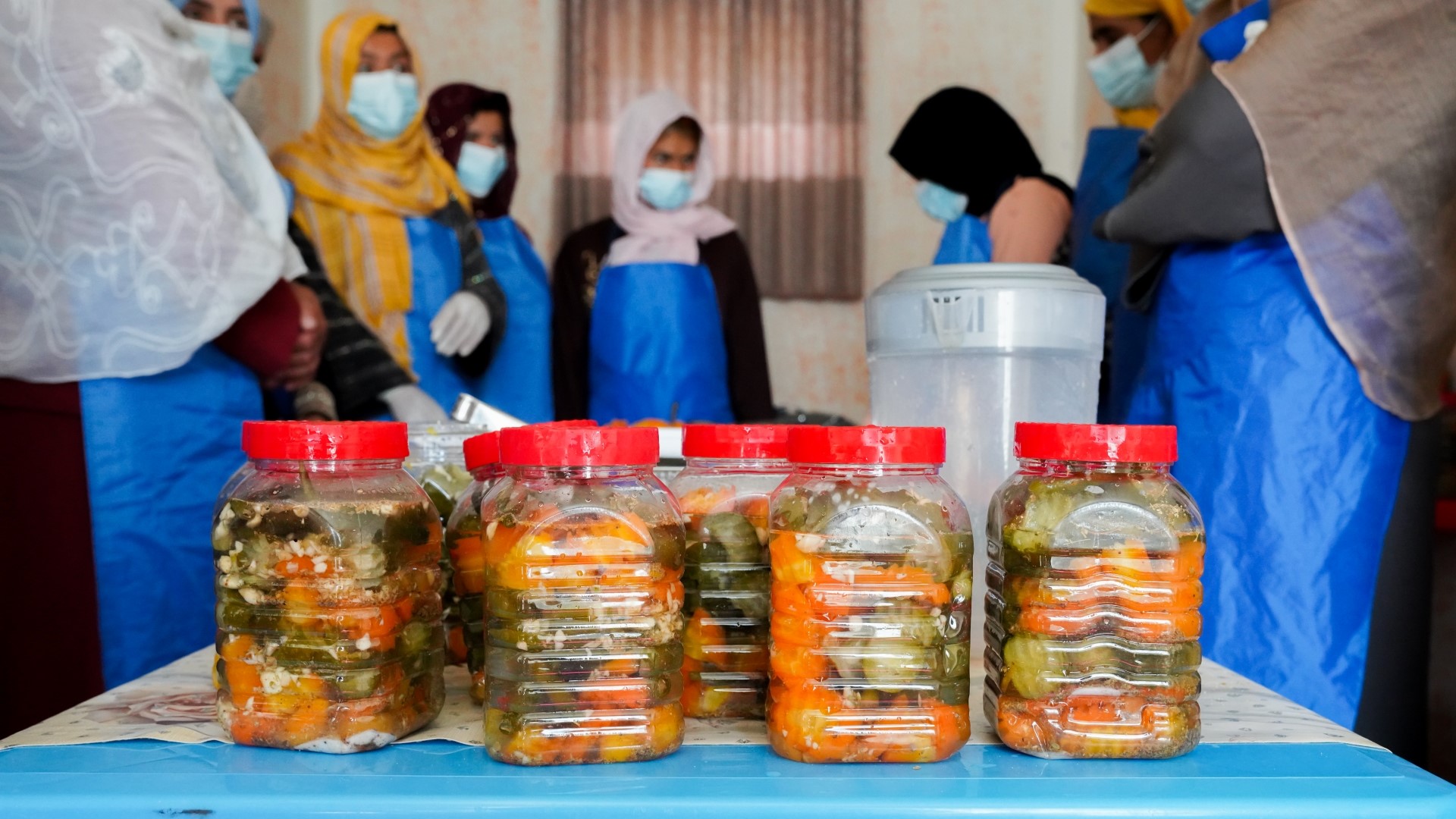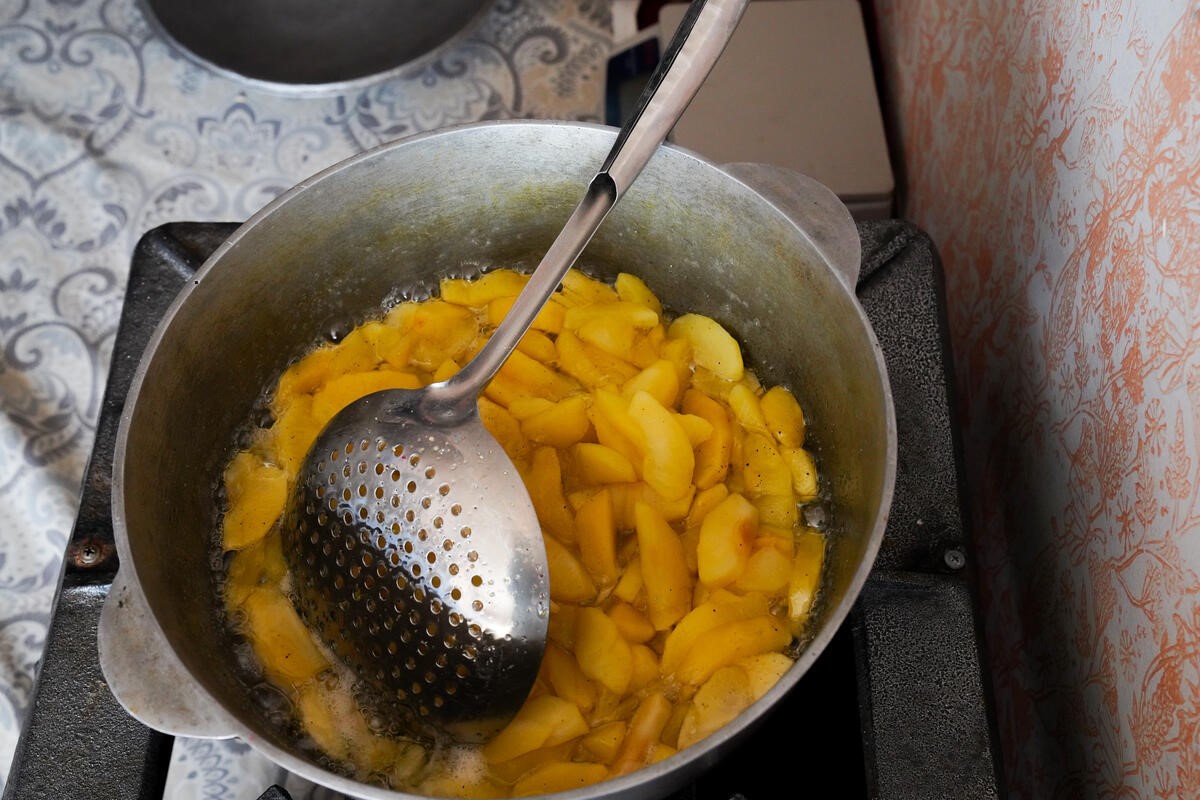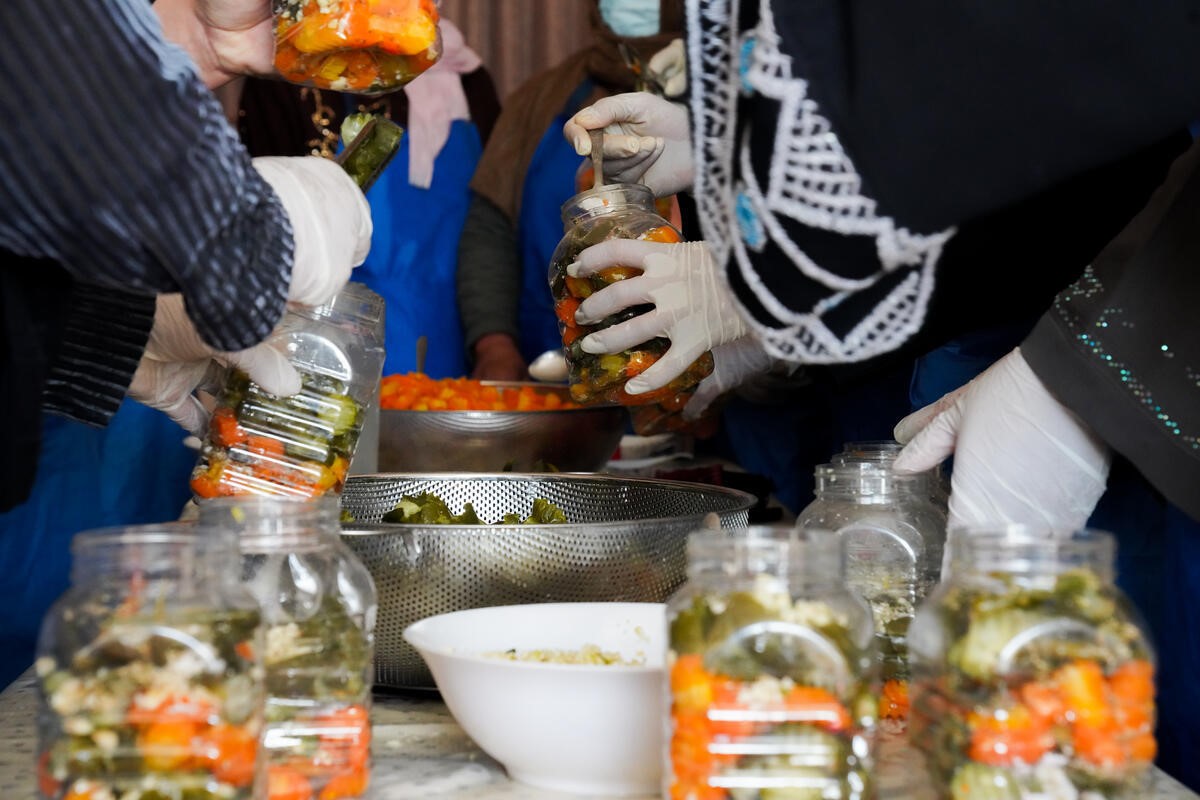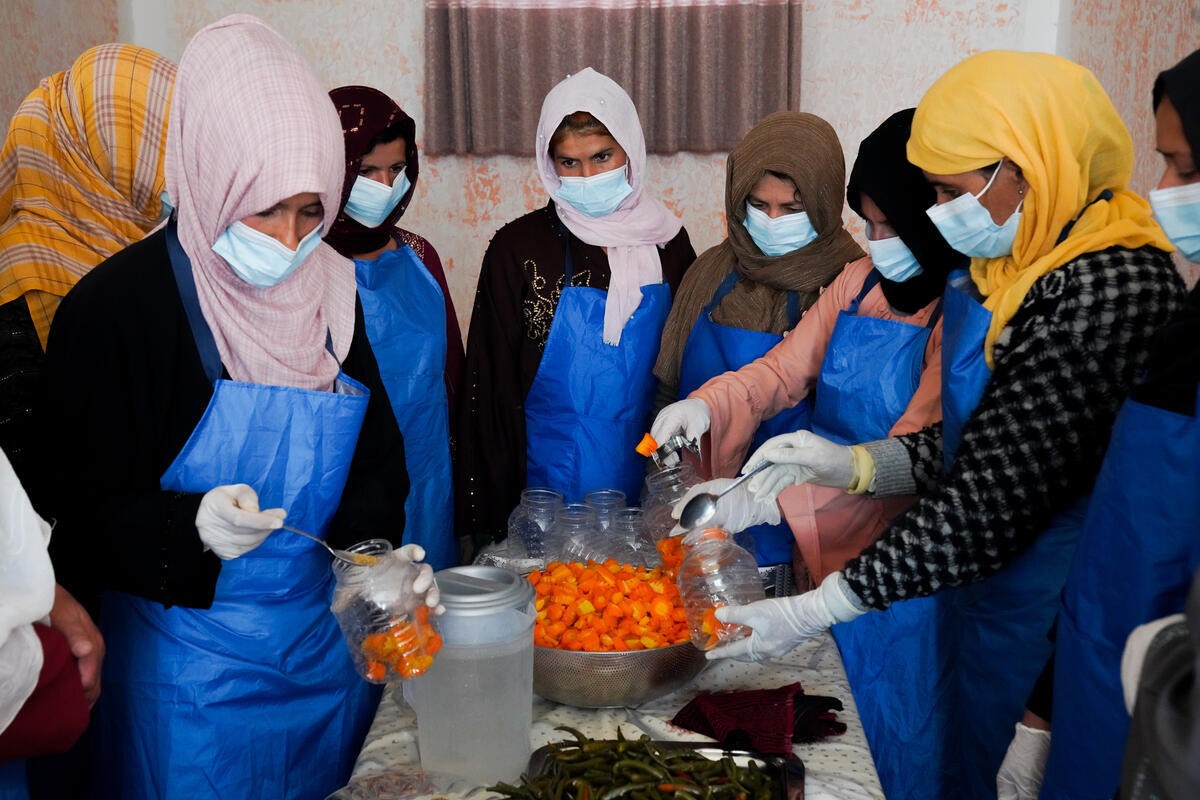
Sealing jars, opening doors
A food processing centre provides economic opportunities for women in Afghanistan
In Afghanistan, where women's livelihood options are limited, the women of Jabal Saraj have turned producing pickles and jams into a source of income. ©FAO/Hashim Azizi
18/08/2025
Jars brimming with assorted produce sit neatly stacked on the table—freshly made pickles, jams and deep-red tomato paste. Nearby, a group of women carefully dice bright orange carrots and grind garlic cloves, while others peel apples—each adding to the growing piles of fresh ingredients, ready to be processed and packaged into containers.
In this district of Jabal Saraj, in the northeastern Parwan province of Afghanistan, these women turned producing jams and pickles into their way of making a living. Hasina and 19 other women gather here regularly to peel, dice and package food for sale, becoming providers for their families.
In Afghanistan, where women's livelihood options are limited, agriculture remains a critical pathway for them. The Food and Agriculture Organization of the United Nations (FAO) leverages its expertise to support women to tap into these agricultural opportunities.
“Prior to starting this, we were housewives. We faced financial difficulties and emotional stress. Now this project showed us that us women can stand on our own feet,” Hasina explains.
As part of the Household Food and Livelihood Security (HFLS) project, funded by the Government of Luxembourg, FAO helped to set up the centre where Hasina and other women prepare and package the products.
In addition to the centre, the project also provided equipment and training so that the women could learn to properly process and market a variety of produce.
When they began selling these products in local markets, the women started earning their own income. This allowed them to afford essentials such as food, clothes and school fees for their children. Hasina uses the money to cover her five children's school expenses, buy milk and baby products and pay for transportation costs.


The food processing centre initiative, part of the Household Food and Livelihood Security project, has provided women with agricultural inputs and skills to operate small-scale food processing business as a livelihood option. ©FAO/Hashim Azizi
Mobilising skills and women’s potential
Hasina and the other women also received guidance and support from women social mobilisers who engage closely with them. Social mobilisers are young women and men, recruited and trained by the HLFS project, who recently finished studying agriculture and are putting what they learned into practice. They pass on this learning in the areas of nutrition education, sanitation, childcare and access to public services to other members of the community.
Fazila Sadat, a social mobiliser who works with Hasina’s group, guides them through regular practical sessions: from how to safely prepare each product to how to improve packaging and hygiene. Early on, Fazila met with the group once or twice a week to conduct hands-on training.
As the women gained skills and confidence, the sessions shifted to weekly check-ins to discuss progress, markets, and production plans to ensure learning was put into practice.
In addition, to help the women expand beyond local markets, the project created opportunities to showcase their products in agricultural fairs and exhibitions. One such event took place in Kabul, where women from the centre connected with buyers and learned about market demand. They also improved their marketing by designing and printing product labels to attract more consumers.
The support of the project has given Hasina and others the opportunity to support their own families. It has also fostered community engagement—a space where the women gather not only to address economic challenges but also offer emotional support.

Social mobilisers provide guidance and support to women in the centre and offer necessary training and skills. ©FAO/Hashim Azizi
Growing impact
Between January and June 2025, women in the four target districts involved in food processing initiatives through the HFLS project produced over 154 000 kilograms of goods for sale—ranging from jams and chutneys to sauces and pickles. These sales generated approximately AFN 6 930 000 (USD 99 000), income they would not have otherwise earned, and helped to reduce dependence on imported products from other countries.
FAO’s broader Food, Nutrition and Livelihood Security programme in Afghanistan focuses on supporting the poorest 20 percent of households in each targeted district. The Programme identifies the most viable and profitable livelihood strategies based on local conditions and market potential. Participants then receive tailored assistance such as farming inputs, food processing kits and business training bolstering productivity and livelihoods.
Since April 2010, the Programme has reached more than 385 000 people across 16 districts in eight provinces, supporting some 55 000 families—around one in six of which are headed by women. Together, women and men are turning small-scale efforts into steady progress.
Learn more
- Publication: Household Food and Livelihood Security (HFLS)
- Website: FAO country profile: Afghanistan
- Photos: Digital Media Hub

